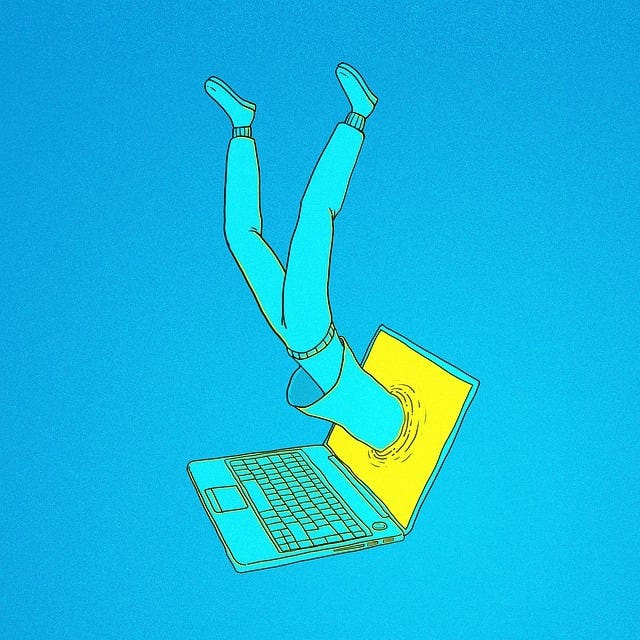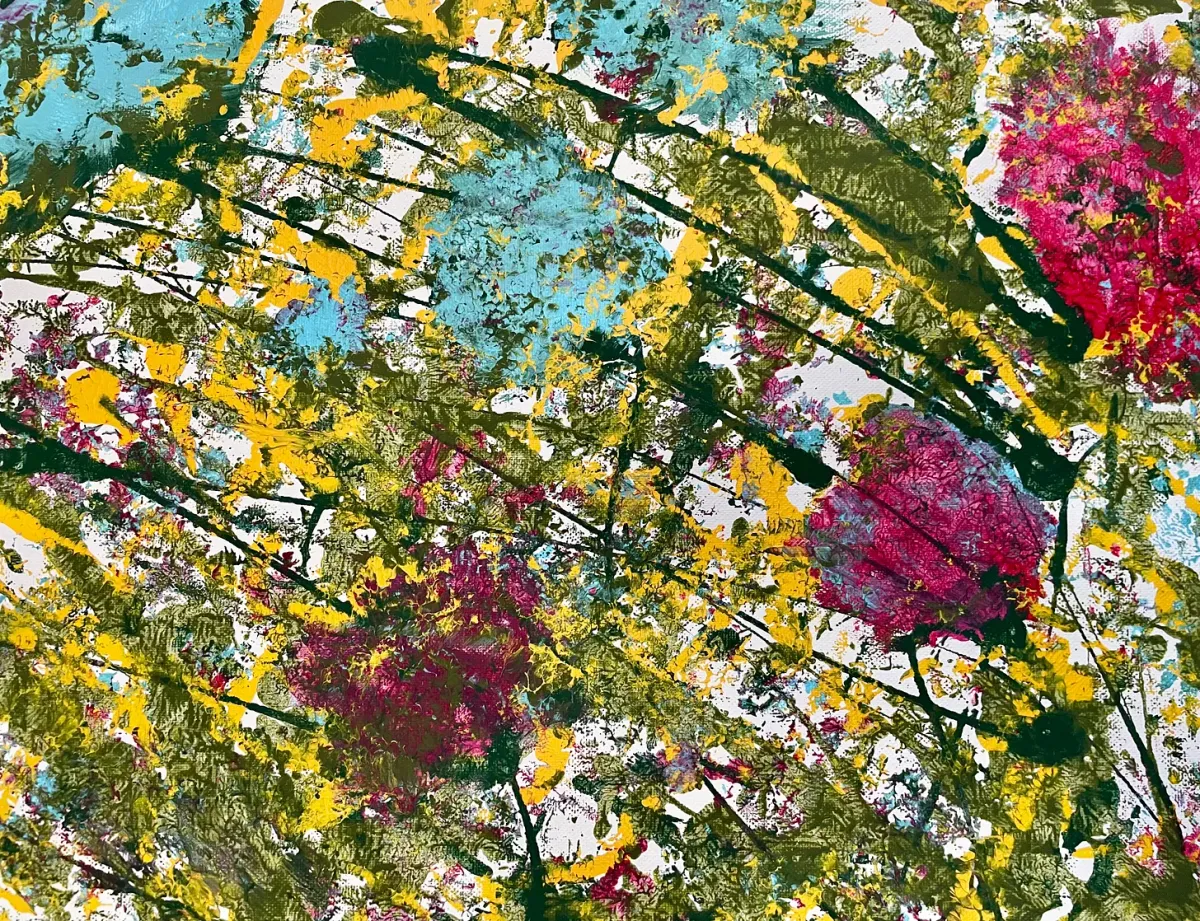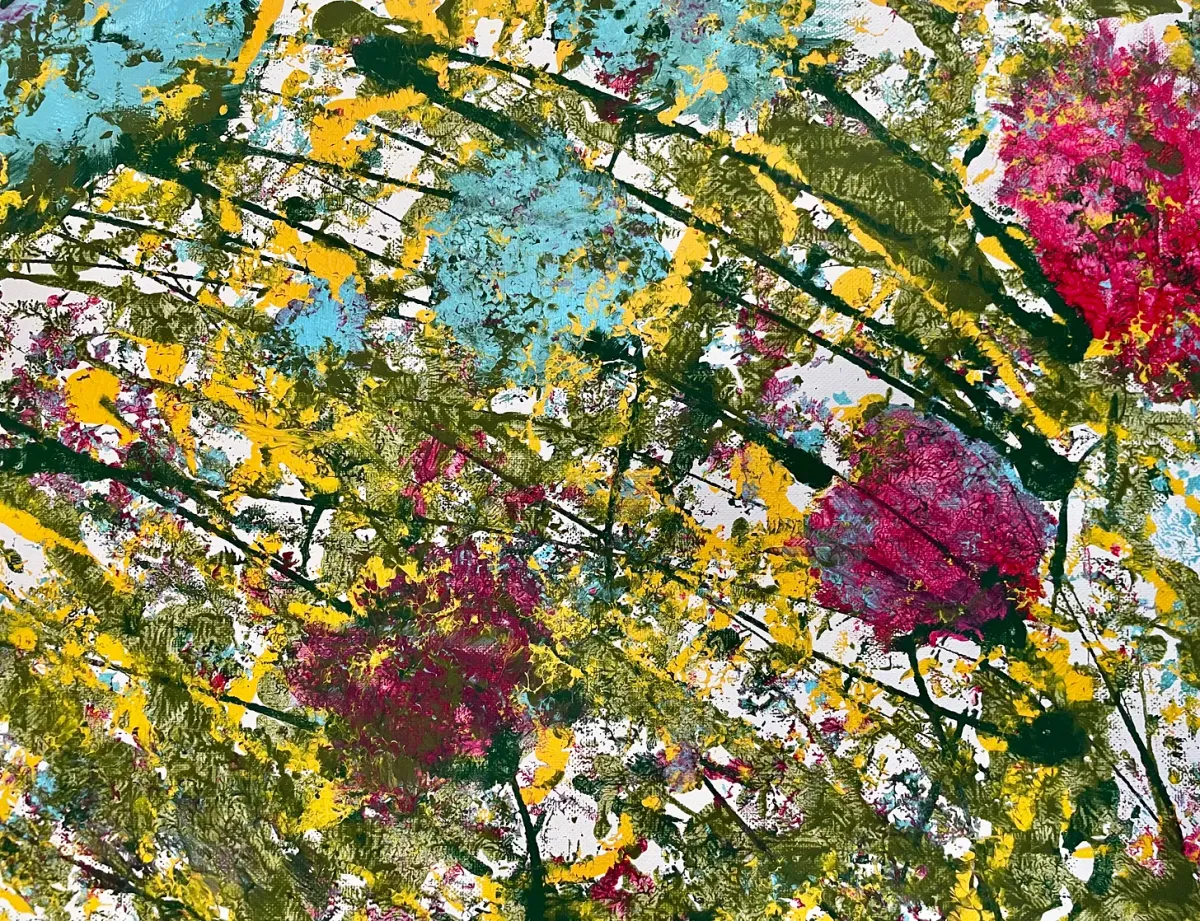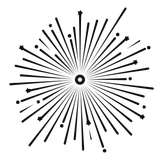March: Offline Reading Month
I love the start of a new month. It’s the opportunity to set the record straight and get back on the bandwagon. Monthly beginnings present a pleasant break to assess what worked in the last thirty-odd days.

I love the start of a new month. It’s the opportunity to set the record straight and get back on the bandwagon. Monthly beginnings present a pleasant break to assess what worked in the last thirty-odd days. They are an opportunity to celebrate the wins (because we overlook them) and mindfully leave behind the losses. Thanks to those who wrote to say my last post spoke to them. It’s always heartwarming to hear from you ❤️.

Earlier last week, I woke up bleary-eyed to a text message I had received during the night from a dear friend of mine who lives many time zones away.
This is a very long read but it’s intriguing and I thought you’d be interested, the message read.
Normally, I would have left it for later, because I was about to begin my morning writing session. Writing time is sacred, and a lot of staring into blank space already squander much of it.
But I was looking for extra inspiration that morning and figured a quick article wouldn’t do any harm.
The write-up was indeed interesting. It talked about the drastic decline of enrollments in the humanities due to increased political and economic interests in STEM degrees. This isn’t too surprising, but the numbers are frankly quite shocking (ranging from thirty to fifty per cent over the last decade).
It’s not that students aren’t interested in language studies and the arts. It’s that they do not perceive the humanities as a serious academic field. Nor do the humanities present viable and stable career paths.
And yet, as the article points out, people who major in the humanities often end up in leadership roles thanks to their communication and analytical skills.
We need people trained in human thought to deal with human beings.
You can’t help but wonder what sort of world we’ll soon be living in with such a heavy skew of graduates trained in only one way of perceiving and approaching problems.
The journalist did a great job researching and interviewing professors and students. Maybe too much of a great job.
As you may have noticed, my brain overlooked the part of the message that said it was a long read. And boy, my friend wasn’t kidding! It took me at least forty-five minutes to read that article, even when skimming through certain sections.
This is the difficulty with online reading. You can never really gauge the length of an article or story on a screen unless it’s explicitly stated at the beginning, which often it isn’t. Having read many e-books over the years because I moved a lot, I’ve noticed that this issue also exists with digital books. And since page and screen formatting vary so much, you will never find a total page count in an e-book. You’re basically reading into the void.
I scrolled back to the top of the article, wondering if I had missed a time label that would have provided a warning. There was no estimated reading time, but the duration of the audio version should have given me a clue. The recording was over an hour long!
Why am I rambling on about a lengthy article that highlights what you and I both already know? That Western societies and a good part of global societies continuously strip away the value of what makes us human: thought, emotions, art, and creativity.
It’s because of this quote from an English professor at Columbia:
“Technology in the last twenty years has changed all of us[…]I probably read five novels a month until the two-thousands. If I read one a month now, it’s a lot. That’s not because I’ve lost interest in fiction. It’s because I’m reading a hundred Web sites. I’m listening to podcasts.”
Here I was, scrolling through what seemed like a never-ending read, instead of doing what I had intended to do, which was writing. That quote was a wake-up call.
The article highlighted two important aspects for me:
1) I realized why I’m not finishing as many books as I’d like and;
2) Online reading is one of the major culprits for this. (I spend little time on social media, and I’ve considerably reduced my video streaming habits.)
I’m not a Luddite, and I believe that it’s normal for the written form to evolve with time. What bothers me is when those forms hijack how I spend my time, swaying me away from the things I actually want to do.
As we begin a new month, I thought I’d experiment with a challenge: stop reading online for thirty-one days.

No online reading for the month
What exactly constitutes “no online reading”? For me, it means:
- No news articles, short stories or blog posts
- No social media posts
- No reading e-books on my reader
- No newsletter reading (This will be extra challenging, and I recognize it is contradictory on my behalf. But I’m already behind on a lot of them, so what’s an extra month?)
Some exceptions:
- If it’s related to my work, it’s ok. I know myself well enough that I won’t be reading that stuff when I’m off.
- Emails, because they’re necessary for work and communication with friends and family.
- Audiobooks and podcasts, because I only listen to them when I’m doing chores. (Although, I’ll have to resist the temptation to look up the subjects I hear about online. Either I note them down, and wait till April to look them up, or I can go to the library.)
- Skimming through literary journals if I’m actively submitting a story. (This will also be tricky; I have to avoid falling down the rabbit hole.)
I expect this challenge to be difficult, but I’m also excited to see if it changes anything for me. I picked up a few books from the local library to get started.
It’s always great to have some accountability partners. So if you’re interested in trying the challenge, let me know!
PS. I’ve purposely not shared the article to help kick-start the challenge for you :D If you’d like me to send a link in April, just message me.
Happy writing, happy creating (and happy no screen reading)!
G.G. Law
Update: It’s been a few days now, and I can confirm that it’s extremely hard NOT to read something on my phone or e-reader. The good news is I’ve already finished a book and a half in five days. Stay posted on my progress. If a month is too much, try a day or week. Don’t forget to let me know how it goes!
Read more about the challenge here:



Thanks for reading TIL. If you enjoy this post or newsletter, please share! 🫶






